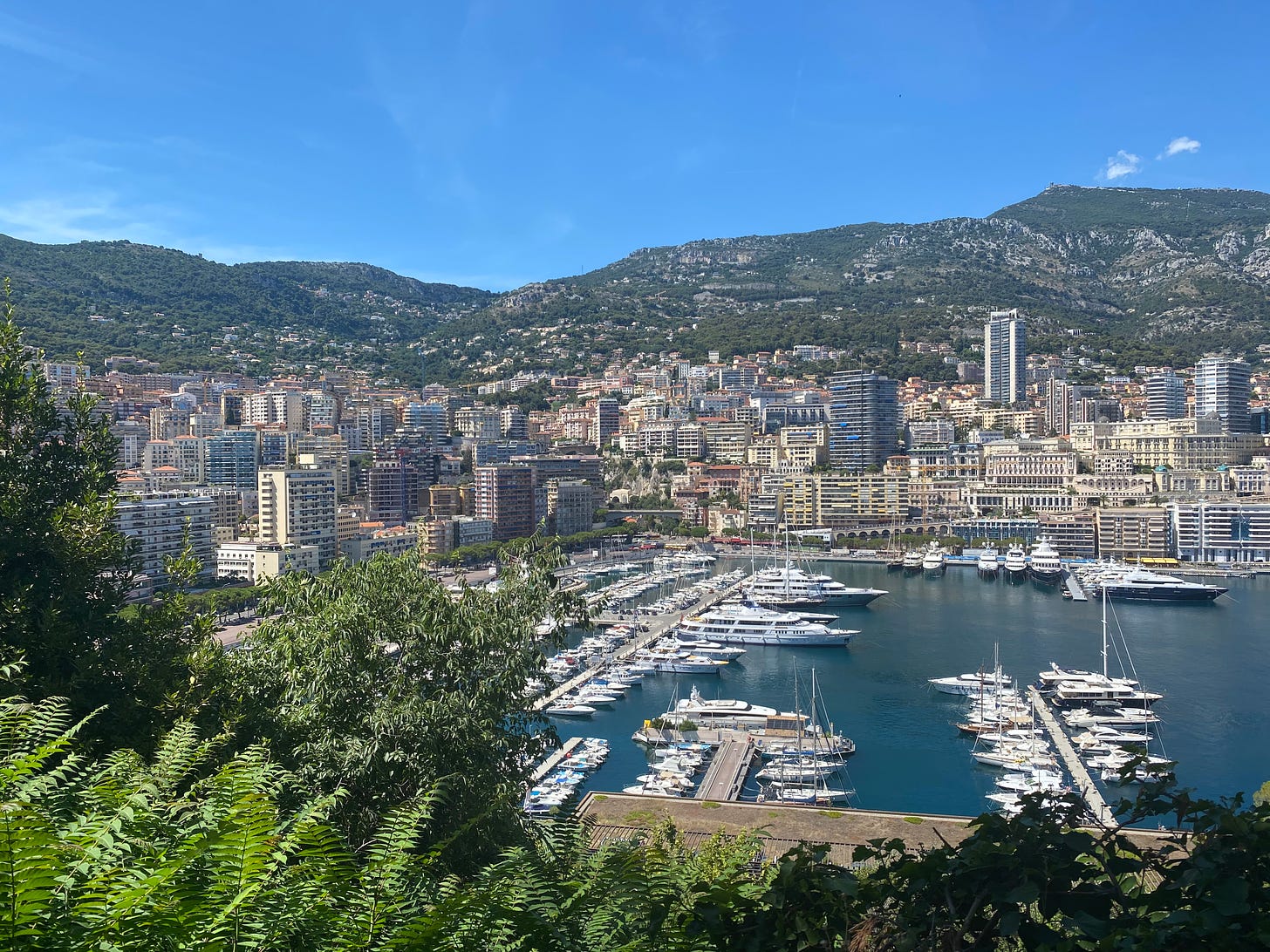
You all know Monaco. It’s the fabulously rich principality on the southern coast of France. A sovereign state with 30,000 residents and no arable land, oil wells, or income tax. There are 500 police officers who I watched zealously give out tickets to visiting French motorists speeding through its two miles of roads, as there is no other real petty crime to deal with.
Of the 30,000 or so residents, only 6,000 are actually citizens, the Monégasque. The rest are wealthy foreign residents keen to take advantage of its lenient tax system. The few real Monégasque reap the benefits as the state subsidises their rent and helps them find jobs. They are, however, banned from playing in the country’s most famous attraction, the Monte Carlo Casino.
I only spent a few hours in Monaco, mostly spent eating pistachio ice cream and trying to understand why it exists. The reason is quite simple, and must be credited to the ruling Grimaldi family who seized Monaco in the 13th century disguised as Franciscan monks hiding swords under their habits. From then on the Grimaldis convinced each European hegemon in turn let them stay in charge.
Not being a gambler, I went to Monaco because it’s a microstate and microstates fascinate me. Others in the club include places like San Marino, Liechtenstein, and Andorra. Stubborn places too small to worry about as the world streamlined. These microstates are survivors of the otherwise forgotten nations that once littered Europe and the world. The great irony, though, is that while Monaco and her sister microstates’ freedom depended on their absurdity in the eye of the world’s great powers, they have outlasted them all.
Monaco was granted sovereignty in the 1860s by Emperor Napoleon III of France, deposed a few years later. San Marino received its independence from the Roman Empire in the 4th Century, while Andorra was split off from the long forgotten Kingdom of Aragon in the 13th century. None of these great potentates would ever have imagined that the tiny stubs of countries they took pity on would have legacies much longer than their own. Yet today, San Marino competes in Eurovision and the Roman Empire does not.
Thinking about it in this way, it becomes much easier to see the possibility of say, an independent Scotland, or a political federation of states in Europe. While considered fantasy by their critics, both were realities incredibly recently.
In his fantastic book Vanished Kingdoms, Norman Davies says that “the lifespan of the even the mightiest state is finite.” Every single country we take for granted now may pass, and before we may even realise. But whatever happens, I am sure Monaco and its pistachio ice cream will survive.